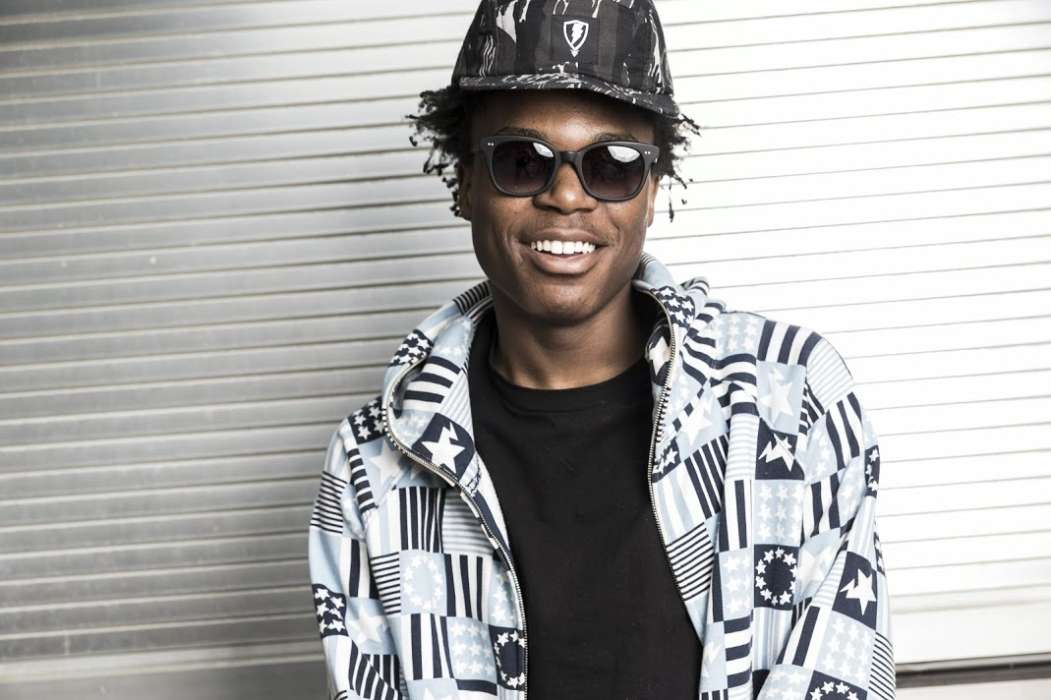Instagram.com/deadboylife
Lucki, the rapper, is on the brink of a legal battle against Empire, the label he is signed to, for breach of exclusive distribution contract. Empire’s lawsuit claims that Lucki received approximately $10 million in advances and expenses from 2019 onward, while the artist is alleged to have been using UnitedMasters, a competing platform in the music distribution space, to release songs. The lawsuit has heightened discussion about label dealings, artist independence and the harsh financial realities of the music industry.
Advertisement
DJ Akademiks seems to be the source of all the hype and the music world went crazy in no time after he revealed the lawsuit and everything related to it. The case is stated by Empire, as it says that according to the contract it has the worldwide rights to distribute only Lucki’s music. The company has stated that it has been heavily involved in the Chicago rapper’s career, providing around $10 million in various types of advances and expenses over a five-year period. By contrast, Empire accuses Lucki of violating the contract by releasing a single through UnitedMasters, a rival service that gives artists more freedom.
The reactions of observers have been truly varied. There was immediate support from a large fan base for the artist, one of them simply saying: “I’m on Lucki’s side.” 🔥’ This comment perfectly describes the growing pattern of fans choosing artist self-governance over traditional record label structures. The discussion was not limited to this single case; rather, it deployed industry patterns and rumors.
One user was quick to suggest that the timing would be right for the promotion, saying, “if this is a marketing gimmick, then it’s a genius.” Another supported his claim by saying that the theory was strong ‘because of the way he reacted’, pointing out that some people think the whole situation is a stunt to get attention. Indeed, the lawsuit has put Lucki in the spotlight, whether calculated or sincere.
The $10 million figure has become a highly controversial point of discussion. Some users were surprised and commented that the artist they had never heard of could not receive such large advances. One dubious user claimed: ‘There’s no way he got anything close to 10m 😂😂 I’m not even a pack of friends,’ which was one observer’s expression of disbelief. This gateway has opened up discussions about how streaming has made it possible for artists with specific fan bases to generate new revenue even if they don’t have mass appeal.
Those with a deep understanding of music industry accounting practices had a different point of view. The user’s comment, “10 million in 6-7 years doesn’t seem like much considering taxes, your manager’s salary and other expenses,” illustrated how big gains can easily be absorbed by the portions taken. Another user gave a more complete explanation on this topic saying that ‘the deal is structured in such a way that you only get 10% of that money and the remaining 90% is basically used for the study, so I don’t blame you if you look for an alternative distribution.’
The conversation took a rather negative tone when some users alluded to long-standing doubts about the honesty of Empires’ business practices. ‘Empire’s 360 deals are like Suge Knight’s ways of doing business and you know the empire rumors,’ was one user’s comment, referencing the industry’s infamous figures. In a less sardonic way, another user posed a less aggressive question: “When I say Empire is shady, all I’m asking is that they don’t kill them,” indicating that the concerns are not just limited to the usual contract disputes.
Many users saw this case as an opportunity to make comparisons with other artists who went through similar situations with record labels. “Dolph had the exact same kind of treatment and was getting this kind of role from Empire, but y’all called him independent,” one observer commented, pointing to the late rapper Young Dolph. The connection made it clearer how these types of deals have become a common reality in today’s music scene, even for artists who are typically considered free.
The debate also outlined Lucki’s particular niche in the music ecosystem. ‘Everyone says who’s sleeping, Lucki has a cult fan base like curren$y. “Those typography artists make more money than most big-name artists in the industry,” was the statement from one well-informed fan. This insight comes in handy when figuring out how an artist who doesn’t get much radio play can still make substantial income thanks to a loyal audience and consistent streaming numbers.
Some users considered the legal issue as a trigger for creativity. One user stated: “He needs some shit to rap and be glad to face adversity,” suggesting the legal battle could lead to more music. Others, however, focused on the business side, with one saying ‘breach the contract so it can be voided 😈’, while another quickly responded that this wouldn’t work without first paying damages.
Those who are attentive to trends in music distribution found the UnitedMasters pole especially interesting. One supporter expressed his opinion about the brand promising artists larger royalty shares and keeping ownership rights with them, so “Shout out, @unitedmasters labels need to allow artists more freedom.” This observation points to the intensification of the conflict between the conventional framework of record labels and the new distribution channels that give power to artists.
Advertisement
As the conversation unfolds, the lawsuit raises some fundamental questions regarding the future relationship between artists and the label when distribution platforms will be serious competition for record companies. The ruling could shape the way both established and emerging talent conduct their businesses in the future. However, the music community is keenly aware of the potential implications this legal drama could have beyond the career of a single artist, which is why it closely shares the attention paid to the case. The situation is part of the ongoing saga of the music industry struggling to adapt to the digital age when it comes to music creation, distribution and monetization. Lucki’s recent collaboration with Lil Yachty further highlights his active presence in the current music scene.



